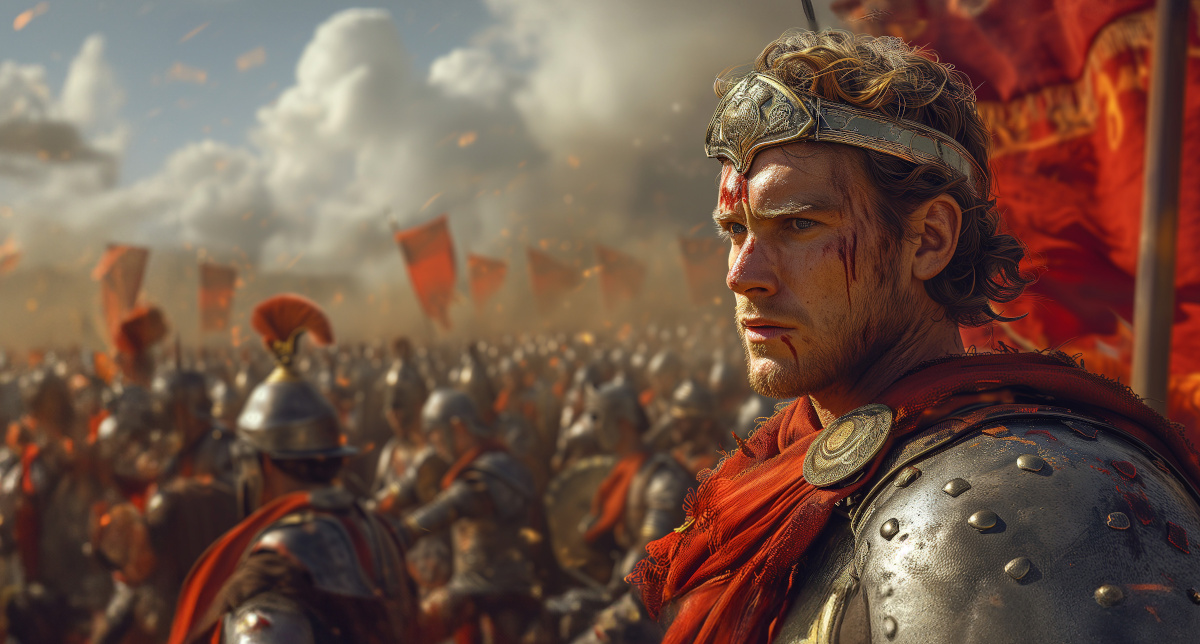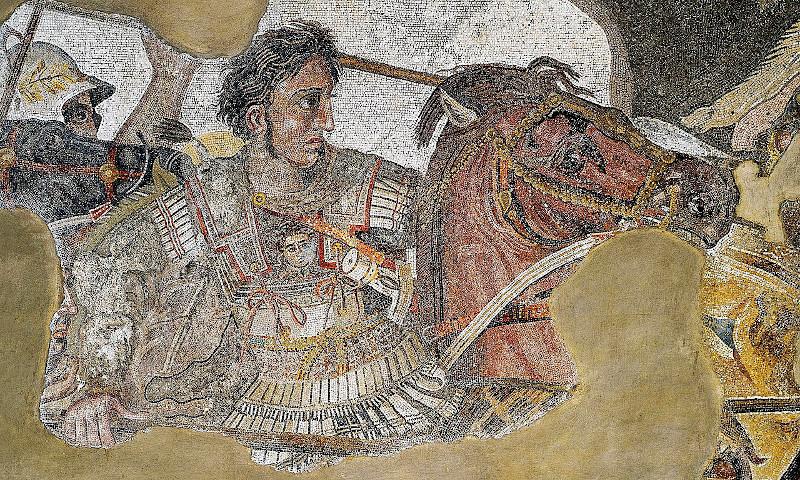
Alexander the God
It is no wonder that Alexander the Great (356 BC–323 BC) was often mistaken for a god; he modeled his life on nothing less. Instilled in him from an early age was the belief that he was the product of a union between his mother, Olympias, and the lord of the Olympian gods, Zeus almighty himself. He never doubted it and made much of his divinity during his campaigns in the East, where it held the most sway.
Yet he was much more than just a god. An iconic hero of mythic proportions, Alexander is considered the greatest military general in Western history; his military expeditions are praised for advancing science and geography by shifting the major concentration of “civilization” eastward. Moreover, when Hellenistic culture expanded from Macedonia to the Indian subcontinent, similar language and currency links were formed, opening new commerce routes and cross-cultural interaction. In this way, many believe that Alexander’s achievements contributed to the Roman Empire’s rise in power and the eventual spread of Christianity across most of the known world.
Increasingly, however, historians are reassessing his contributions. Viewed from another perspective, the dissemination of Greek culture throughout the East came at the expense of Eastern civilization while leaving behind a trail of death and destruction in its wake. The Great Conqueror who never knew defeat was responsible for killing hundreds of thousands—by some estimates up to a million—of those who crossed his barbarous path.
- Lysippos, Sculptor Hairdresser Of Alexander The Great
- Alexander the Great Destroyer? The Sacking of Persepolis and The Business of War – Part I
This paper focuses on Alexander's conquest of the Persian Empire and his unwavering determination to subjugate every known country in the East. We'll examine Alexander's times while reviewing some of the factors driving this young king's apparent obsession to wage war to the exclusion of nearly everything else in his brief life.

Mosaic of Alexander the Great discovered at Pompeii. (Public Domain)
When listing Alexander's accomplishments, the major achievements of his father, Philip II of Macedon, are frequently overlooked. Not only did Philip build Macedonia as a dominant power, which most Greek city-states feared, but it was Philip's army that Alexander exploited in his legendary victories. Philip invented the sarissa, an 18-23-foot-long spear that gave Macedonian infantry a substantial advantage over their opponents, whose spears were significantly shorter. He also formed the Companion cavalry, an elite heavy cavalry unit comprised of Macedonian aristocracy. The phalanx with sarissas surrounding the adversary and the companion cavalry attacking from the flanks proved to be a fatal combination for adversaries.
Moreover, because Philip made the military a full-time occupation with rigorous training and routine drills, his troops not only became skilled fighting machines but also military engineers, capable of building roads, bridges, and the infrastructure required for battlefield success. If it weren't for his father's improvements and military innovations, we may now be asking, "Alexander, who?"
Nevertheless, because of the supposed encounter between Olympias and the all-powerful Zeus, Philip’s paternity was often in some contention. According to the ancients, Olympias would regularly remind Alexander that he was divinely conceived, contributing greatly to Alexander’s hubris and Philip’s chagrin. Being the progeny of Zeus, however, was not enough; Alexander also had two of the most powerful heroes in his mortal family tree. Plutarch reports that Philip was the direct descendent of the demi-god Heracles, and Olympias’ line reached back to Neoptolemus, son of the demi-god Achilles himself, the hero of the Trojan War in Homer’s Iliad. Of all heroes, Achilles was the war hero with whom Alexander most identified. With a bloodline that included the lord of the gods and two of the strongest and bravest of heroes, who could blame Alexander for being singular in his divine mission?
In that regard, Philip ensured that Alexander had the best education available. Because Macedonia was on the northern periphery of the Greek world, the hard-drinking, rough-and-tumble Macedonians were viewed by the Greeks as uncivilized, barbarian, and even non-Greek. Determined to out-Greek them, Philip established an academy for his son and recruited the most accomplished teacher in the Greek world: Aristotle.




